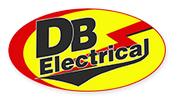When it’s time to fix a vehicle, a common concern is whether using an aftermarket rather than OEM part will void the warranty. The U.S. Federal Trade Commission has a short answer for that concern, and the answer is “no.” The Commission oversees the Magnuson-Moss Warranty Act, which specifies that manufacturers of consumer products cannot void the warranties when aftermarket products are used. As a consumer, you are allowed to choose aftermarket products without fear of losing the protection that a warranty offers.
What is the Magnuson-Moss Warranty Act?
Congress passed the Magnuson-Moss Warranty Act in 1975 as a consumer protection measure. The act specifically applies to consumer products and not those used for commercial purposes. It both protects consumers and defines obligations for companies offering warranties. Because of this act, consumers can choose aftermarket starters, alternators and other essential parts without voiding a vehicle’s warranty.
Protecting your own bests interests
Original equipment manufacturers have a vested interest in trying to steer consumers to OEM products when it’s time to replace a part. OEM products are a significant revenue source for manufacturers, and OEM products often come with a price tag that is higher than other replacement parts. That higher price adds up to a lucrative margin for OEM companies. While OEM parts are often higher priced, they don’t necessarily offer better performance or longer service life. In fact, sometimes OEM and aftermarket parts come from the same factory.
Stay in control as a consumer
Consumers need to decide for themselves what is best for their own circumstances. Fortunately, the Magnuson-Moss Warranty Act works in the best interests of the consumer when the choice for more price friendly aftermarket products is available. With the protection of this act, consumers have the freedom to save hard-earned money and still enjoy the protection of the original warranty. That’s an important win for consumers.


